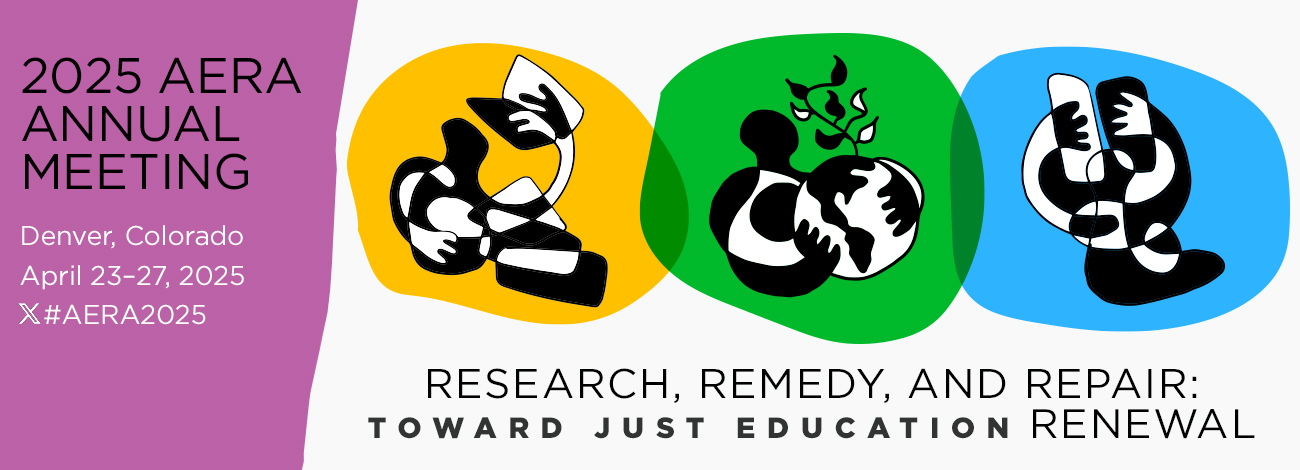MIXI at AERA 2025
Published January 4, 2025 EventsMatt Curinga and Liz de Freitas will be at AEAR 2025 in Denver, Colorado to present research from several MIXI projects. We are also going to host and Adelphi Happy Hour with information about our new PhD in Learning Sciences and its funded scholarships.
Details to follow and reception registration coming soon.

Papers/Presentations
Learning under algorithmic conditions: Critical perspectives on AI and curriculum
Wed, April 23, 4:20 to 5:50pm MDT, The Colorado Convention Center, Floor: Terrace Level, Bluebird Ballroom Room 3F
Symposium abstract. Concepts related to curriculum studies (learning, training, reason, intelligence, memory) are all key notions in machine learning and AI, where theories of learning are often borrowed directly from cognitive psychology, and inherit assumptions from a long-standing colonial legacy of learning research. This symposium offers a critical discussion of how machine learning and human learning are converging under current algorithmic conditions. Speakers share research on a series of case studies (robots, deep fakes, soft thought, participatory AI, computational thinking, ChatGPT) exploring key questions: How might current AI models be reshaping the way we understand curriculum studies? In what ways is curriculum newly linked to machine learning algorithms? How are knowledge and reason recast under these new algorithmic conditions?
This symposium will have 6 authors present their work from the forthcoming book, Learning Under Algorithmic Conditions, from the University of Minnesota Press.
- The limits of learning with participatory AI - Michael Madaio, Carnegie Mellon University
- Learning as Computational Thinking - Matthew X. Curinga, Adelphi University
- The role of deception and fabulation in generative algorithms - Elizabeth De Freitas, Adelphi University
- Instruction vs. Construction: How Might Generative Artificial Intelligence Best Support Learning? - Shayan Doroudi, University of California - Irvine; Sina Rismanchian, University of California - Irvine
- Surrogate robot pedagogy and the racialized inner child - Ezekiel J. Dixon-Roman, Teachers College, Columbia University
- Learning with Incomputable Algorithms and Soft Thought - Taylor Webb, University of British Columbia
- Discussant - Craig Carson, Adelphi University
Mapping Student Flow Through Fragmented School Buildings in Mapping the Field: The Role of Space in Educational Equity
Fri, April 25, 9:50 to 11:20am MDT, The Colorado Convention Center, Floor: Terrace Level, Bluebird Ballroom Room 2A
Session abstract. This structured poster session includes six posters that investigate the critical role of space in advancing educational equity. Space is undertheorized in education but highly consequential for teaching and teacher education at multiple levels of scale, from physical movements and arrangements in the classroom, to resources and residential patterns of a school community and district, to influences of national policies and global patterns of immigration and imperialism. Drawing on various frameworks and methodologies such as critical cartography, education journey mapping, Interaction Geography, and participation boundaries, these posters help elucidate how teachers and teacher educators can work with students, schools, and communities to interact with space at multiple levels, envisioning how space can be used to advance educational equity.
How the concept of racial entropy came to shape ideas about school segregation: A critical analysis of the cybernetic assumptions in school demographic models. Elizabeth de Freitas, Matthew X. Curinga.
Fri, April 25, 3:20 to 4:50pm MDT, The Colorado Convention Center, Floor: Ballroom Level, Four Seasons Ballroom 1
Paper abstract. This paper shows how “de facto” school segregation was served up and validated in the 1970s through particular mathematical models that emerged from within information theory and cybernetic game theory during the second half of the 20th century. Our objective is to expose how cybernetic ideas have come to problematically shape our current discourse and debates about school segregation. These cybernetic ideas were part of a paradigm shift in sociological theories of race relations, whereby information theory generated a new image of urban space, race, and population. We show how the concept of racial entropy was used to naturalize school segregation as a “self-organizing” emergent tendency that arises across communities.